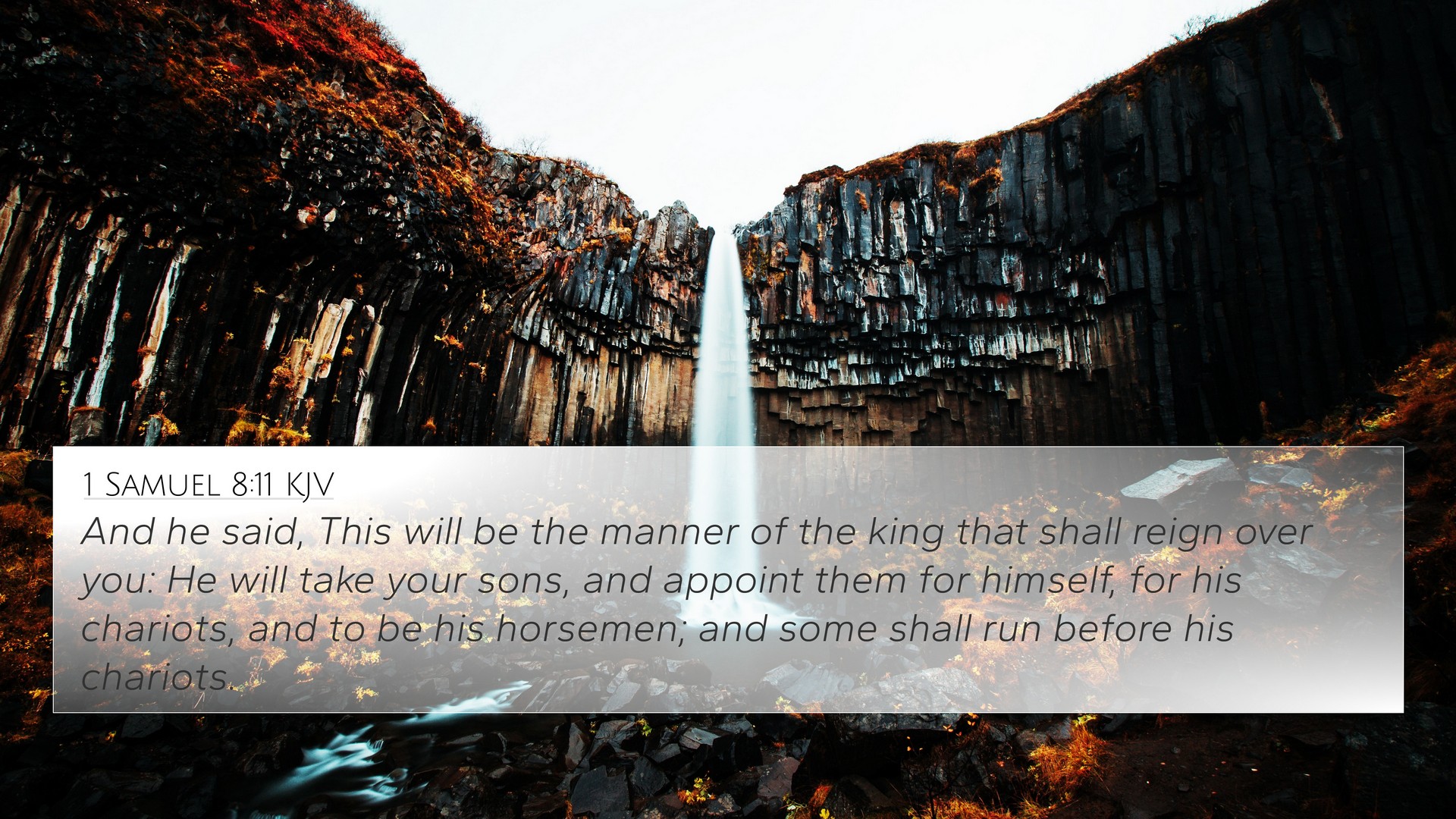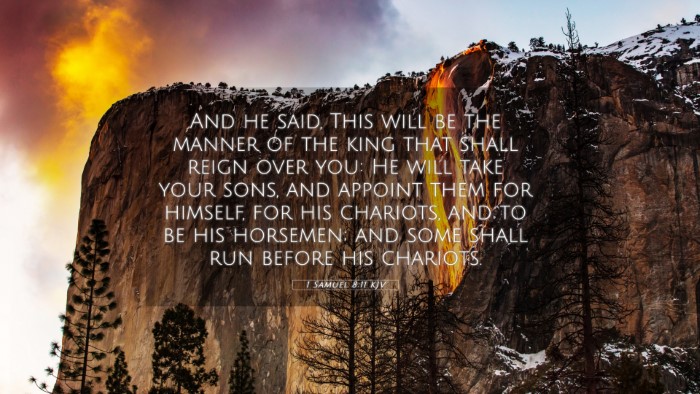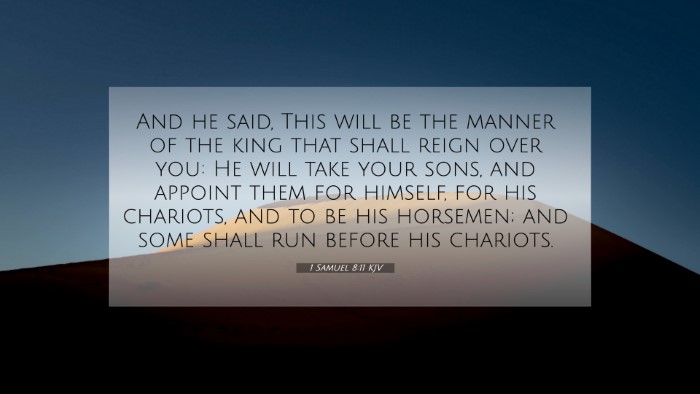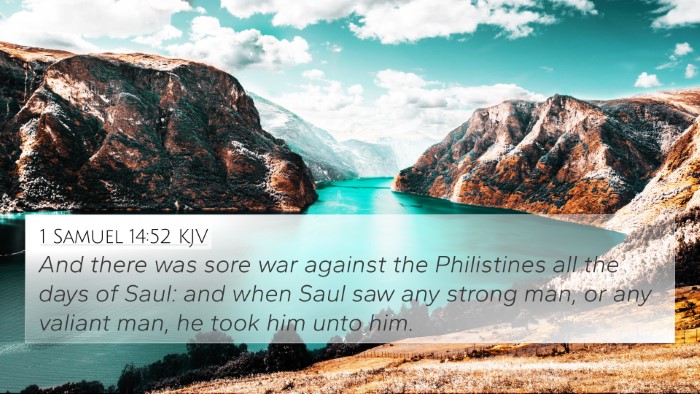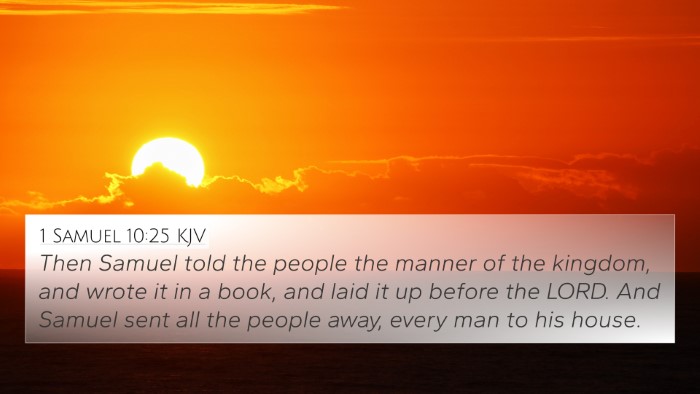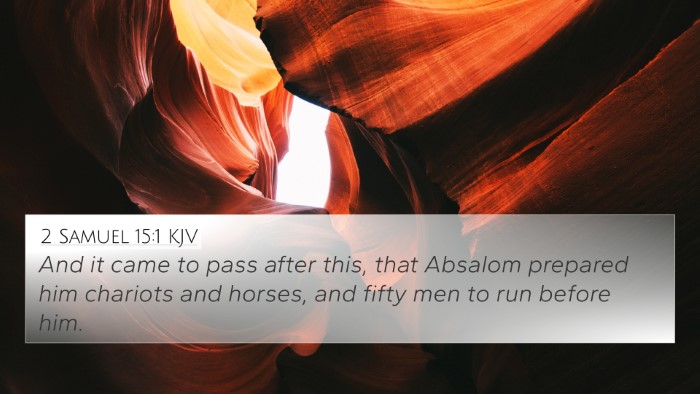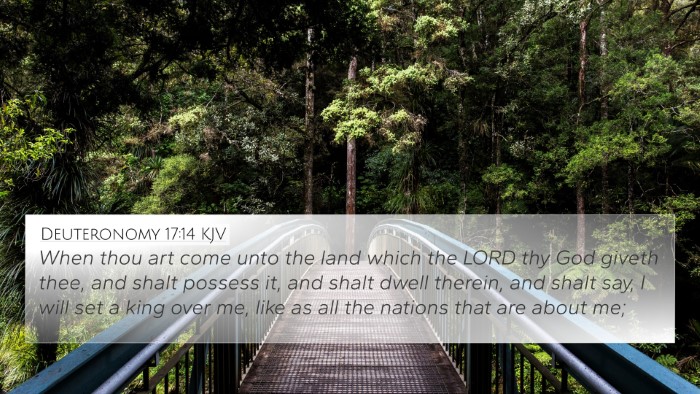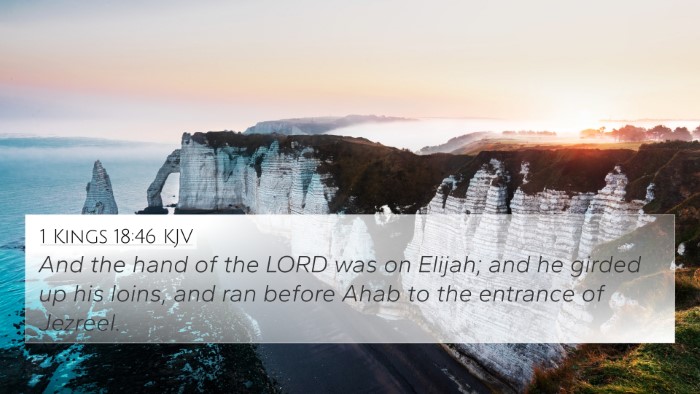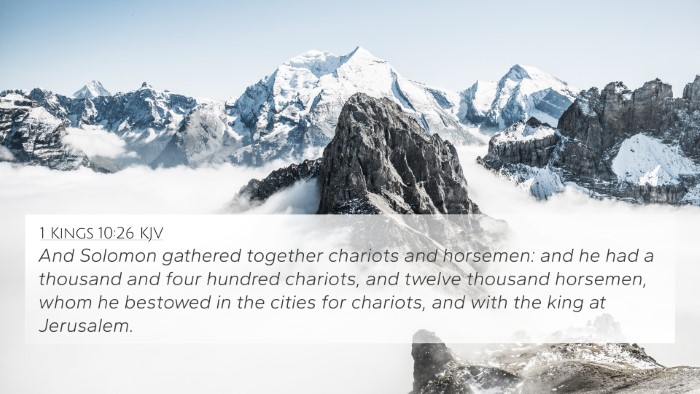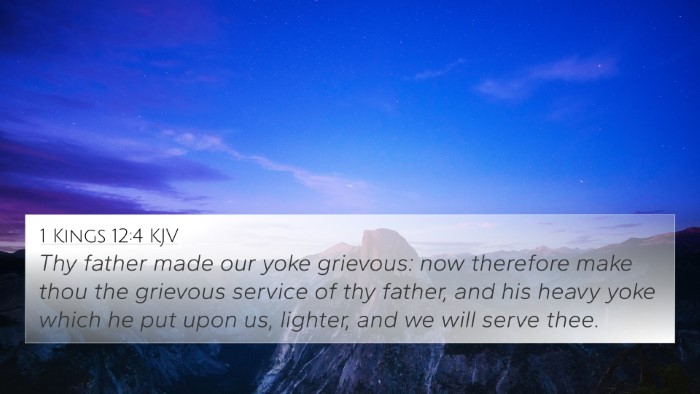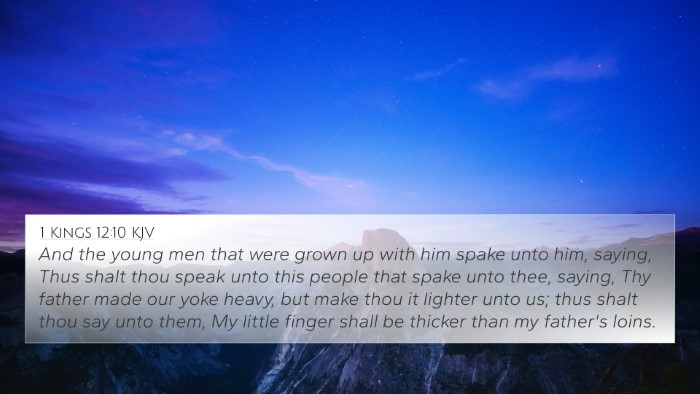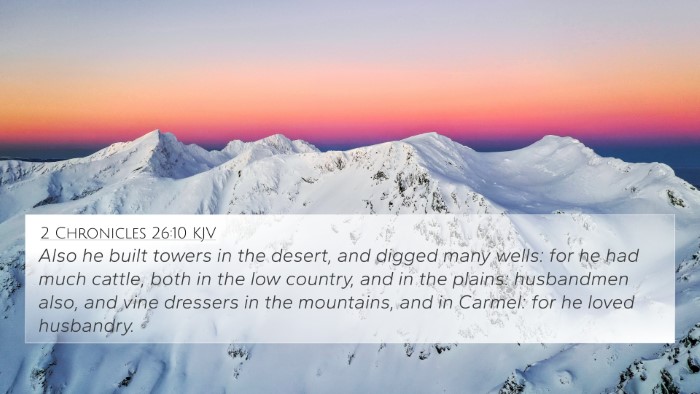Understanding 1 Samuel 8:11
1 Samuel 8:11 states:
"And he said, This will be the manner of the king that shall reign over you: He will take your sons, and appoint them for himself, for his chariots, and to be his horsemen; and some shall run before his chariots."
Meaning and Interpretation
This verse comes from a pivotal chapter in 1 Samuel where the Israelites are requesting a king to govern them, demonstrating their desire to be like other nations. The prophet Samuel reveals the consequences of such a choice, providing insights into the nature of kingship and leadership from a Biblical perspective.
Contextual Analysis
The request for a king is rooted in a variety of concerns, including the desire for national security and stability. The elders of Israel fear the vulnerability they face among other nations and seek a physical ruler to protect and lead them. Samuel’s response, however, warns them that human kings often demand sacrifices from their people.
1 Samuel 8:11 serves as a critical junction in Israel's history, shifting from a theocracy led by judges to a monarchy. At its core, this verse outlines the potential exploitation by rulers who may prioritize their power over the welfare of their subjects.
Insights from Public Domain Commentaries
Matthew Henry's Commentary
Matthew Henry emphasizes that this warning illustrates the burdens that come with human governance. He notes that kings often demand more than what is given to God, taking freely of the people's time and resources. The expectation of Kings, according to Henry, is that they would treat their subjects with justice, but history shows a different narrative.
Albert Barnes' Commentary
Albert Barnes highlights that the roles of the sons mentioned are indicative of the future military ambitions and the ensuing centralization of power that blinds leaders from accountability to the people. He points out that this was a foreshadowing of the heavy taxation and military conscription that would ensue under Saul's kingship.
Adam Clarke's Commentary
Adam Clarke adds depth by discussing the cultural implications of a king. He asserts that these appointed roles lead to a disconnect between the ruler and the subject, where the common welfare is often overlooked. Clarke relates this to the spiritual responsibilities of a leader and posits the need for divine guidance over human preference.
Cross-References
This verse can be related to various other scriptures that discuss leadership, kingship, and the consequences of choosing human rulers over divine guidance. Notable cross-references include:
- Deuteronomy 17:14-20 - God's instructions for Israel when they choose a king.
- 1 Samuel 10:1 - The anointing of Saul as king, setting the stage for the monarchy.
- 1 Samuel 15:24-26 - God's rejection of Saul, highlighting the tragedy of misplaced leadership.
- 2 Samuel 8:15 - David’s reign and its implications on the nation.
- Proverbs 29:2 - The importance of righteous leadership impacting society positively.
- Isaiah 1:23 - A critique of corrupt leadership in Israel.
- Hosea 13:9-10 - A warning against reliance on human kings.
Thematic Connections
The themes of power, authority, and responsibility permeate the biblical narrative, and 1 Samuel 8:11 serves as a foundation for understanding the dynamics between divine expectation and human governance. The nuances of these themes reveal how history is often a reflection of a community's values and aspirations.
Bible Verse Parallels
Several biblical themes resonate with the message found in 1 Samuel 8:11:
- Human Authority vs. Divine Will - Romans 13:1 emphasizes the ordination of authorities by God.
- Consequences of Leadership - James 3:1 warns of the greater judgment that leaders will face.
- The Cost of Disobedience - Exodus 22:25 relates to the principles of societal justice that are often ignored in pursuit of power.
Tools for Cross-Referencing
For those seeking a deeper understanding of 1 Samuel 8:11 and cross-referencing biblical texts, various tools are available, including:
- Bible Concordance - Helps in locating verses based on keywords.
- Bible Cross-Reference Guide - A resource to find related verses across the scriptures.
- Bible Study Apps - Modern tools that provide cross-referencing features and thematic studies.
Conclusion
In summary, 1 Samuel 8:11 underscores the serious implications of choosing a king. The verse warns of the intrusions and obligations that rulers may demand from their subjects, affirming the necessity of God’s sovereign guidance over human leadership.
As believers seek to understand this scripture, engaging in cross-referencing methodologies will enrich their biblical knowledge and promote deeper spiritual growth.
